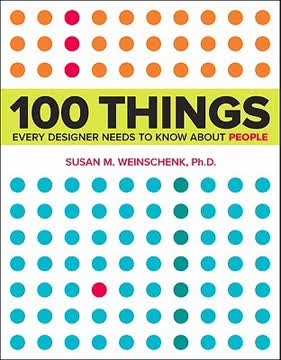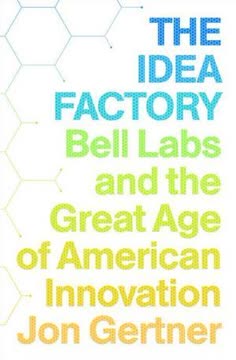가지 주요 요점
1. 주기: 정보 산업의 개방성과 통제의 패턴
역사는 정보 기술의 전형적인 발전 과정을 보여준다: 누군가의 취미에서 누군가의 산업으로; 임시방편의 장치에서 세련된 생산 기적으로; 자유롭게 접근할 수 있는 채널에서 단일 기업이나 카르텔에 의해 엄격히 통제되는 채널로—개방 시스템에서 폐쇄 시스템으로.
주기의 설명. 저자가 "주기"라고 부르는 이 패턴은 정보 산업의 역사에서 반복되는 현상이다. 이는 아마추어 애호가와 소규모 기업가들이 주도하는 개방성과 혁신의 시기로 시작된다. 기술이 성숙하고 상업적 잠재력이 분명해지면, 대기업들이 개입하여 통제를 강화하고 폐쇄 시스템을 만든다.
역사적 예시:
- 전화: 벨의 발명에서 AT&T의 독점으로
- 라디오: 아마추어 방송국에서 네트워크 지배로
- 영화: 독립 제작자에서 스튜디오 시스템 통제로
- 인터넷: 개방된 학술 프로젝트에서 점점 증가하는 기업 영향력으로
주기는 산업이 분산되고 혁신적인 시기에서 중앙집중화되고 통제된 단계로 전환되는 과정을 보여주며, 이는 종종 창의성과 소비자 선택의 희생을 초래한다.
2. 파괴적 창업자: 기존 시스템에 도전하는 외부인
우리가 기억하는 발명가들은 발명가로서보다는 기술적 현상을 뒤흔드는 "파괴적" 산업의 창립자로서 중요하다.
파괴적 창업자의 특징:
- 기존 산업의 외부인인 경우가 많다
- 문제에 대한 독특한 관점을 가지고 있다
- 기존의 지혜에 도전하고 위험을 감수할 의지가 있다
파괴적 창업자의 예시:
- 알렉산더 그레이엄 벨 (전화)
- 에드윈 암스트롱 (FM 라디오)
- 스티브 워즈니악 (개인용 컴퓨터)
이들은 새로운 기술을 발명할 뿐만 아니라, 종종 기존 플레이어의 저항에도 불구하고 완전히 새로운 산업을 창출한다. 그들의 성공은 기술 혁신과 복잡한 비즈니스 및 규제 환경을 탐색하는 능력의 조합에 달려 있다.
3. 특허의 힘: 혁신 보호와 독점 촉진
외부 발명가의 손에 있는 특허는 대기업이 당신을 죽이거나 당신의 회사와 산업을 장악하는 것을 막을 수 있는 일종의 기업 방패 역할을 한다.
특허의 이중적 성격. 특허는 혁신가를 보호하는 동시에 독점적 통제의 도구로 작용한다. 특허는 다음과 같은 역할을 할 수 있다:
- 소규모 발명가를 더 큰 경쟁자로부터 보호
- 기존 기업이 지배력을 유지하고 경쟁을 억제할 수 있게 함
역사적 예시:
- 벨의 전화 특허가 AT&T의 창설을 가능하게 함
- 에디슨의 영화 특허가 모션 픽처 특허 회사 (에디슨 트러스트)를 이끌어냄
특허는 정보 산업의 형태를 결정하는 중요한 역할을 하며, 산업이 개방적이고 경쟁적인 상태로 남을지 아니면 폐쇄적이고 독점적인 상태로 변할지를 결정한다. 특허의 전략적 사용은 파괴적 기술이 성공할지 아니면 기존 플레이어에 의해 억압될지를 결정할 수 있다.
4. 정부의 역할: 규제, 규제 완화 및 산업 형성
FCC와 의회는 라디오를 탄생시킨 개방 시스템이 아니라 그것을 억제하려는 폐쇄 시스템을 축복하기로 결정했다.
정보 산업에 대한 정부의 영향:
- 규제 결정이 산업 구조를 결정할 수 있다
- 반독점 조치는 독점을 해체하거나 지속하게 할 수 있다
- 정책 선택은 종종 신생 기업보다 기존 플레이어를 선호한다
주요 역사적 개입:
- AT&T의 규제된 독점 창설
- 라디오 및 텔레비전 방송을 형성하는 FCC의 역할
- 1984년 AT&T의 해체
- 1996년 통신법
정보 산업에서 정부의 역할은 복잡하고 종종 모순적이다. 때로는 경쟁과 혁신을 촉진하기 위해 행동하지만, 강력한 독점을 창출하고 유지하는 것을 지원하기도 한다. 이 동적 관계를 이해하는 것은 정보 산업의 미래를 예측하고 영향을 미치는 데 중요하다.
5. 수직 통합: 미디어 제국의 양날의 검
산업의 여러 계층에 강력한 지분을 가진 기업은 본질적인 이해 상충의 위치에 놓이게 된다. 두 주인을 섬길 수 없으며, 정보 생성의 목표는 종종 그것을 배포하는 목표와 상충된다.
수직 통합의 이점:
- 규모와 범위의 경제
- 전체 생산 및 배포 체인에 대한 통제
- 자산을 교차 홍보하고 활용할 수 있는 능력
수직 통합의 단점:
- 혁신과 경쟁의 억제
- 콘텐츠 생성과 배포 간의 이해 상충
- 검열 및 정보 흐름 통제의 가능성
역사적 예시:
- 할리우드 스튜디오 시스템의 제작, 배포 및 상영 통제
- AOL 타임워너 합병과 그 궁극적인 실패
- 애플의 통합 하드웨어, 소프트웨어 및 콘텐츠 생태계
미디어 및 정보 산업에서의 수직 통합은 강력하고 효율적인 기업을 만들 수 있지만, 혁신, 경쟁 및 표현의 자유에 대한 위험도 초래한다. 이러한 이점과 단점 간의 긴장은 정보 환경을 계속해서 형성한다.
6. 인터넷: 급진적 출발점인가 아니면 다음 주기의 희생양인가?
독특하게 개방된 설계를 가진 인터넷은 1990년대 용어로 "슈퍼하이웨이"로 모든 다른 정보 네트워크가 그것에 수렴하는 순간을 이끌어냈다.
인터넷의 혁신적 측면:
- 분산된 개방형 아키텍처
- 새로운 서비스와 콘텐츠에 대한 낮은 진입 장벽
- 글로벌 도달 범위와 상호 연결성
인터넷 개방성에 대한 도전:
- 망 중립성 논쟁
- 주요 기술 기업의 증가하는 통합
- 정부의 감시 및 검열 노력
인터넷은 이전의 정보 기술과는 근본적으로 다른 잠재력을 가지고 있으며, 개방성과 분산화의 원칙을 구현하고 있다. 그러나 기업과 정부의 압력으로 인해 더 폐쇄적이고 통제된 시스템으로 변할 위험이 있다. 인터넷이 개방적 성격을 유지할지 아니면 중앙집중화와 통제의 역사적 패턴에 굴복할지는 여전히 미지수다.
7. 분리 원칙: 정보 자유를 위한 프레임워크
내가 제안하는 것은 규제 접근 방식이 아니라 정보 경제에 대한 헌법적 접근 방식이다. 즉, 정보 통제로부터 파생되는 모든 권력을 제한하고 분할하는 것을 목표로 하는 체제를 의미한다.
분리 원칙의 주요 구성 요소:
- 콘텐츠 생성과 배포의 분리
- 정보 인프라와 서비스의 분리
- 정부의 역할은 사적 권력에 대한 견제이지, 그것을 돕는 것이 아니다
실행 전략:
- 과도한 수직 통합을 방지하기 위한 반독점 집행
- 정보 인프라에 대한 공통 운송 규칙
- 개방성과 정보 윤리 문화를 조성
분리 원칙은 정보 산업에서 개방성과 혁신을 유지하기 위한 프레임워크를 제공한다. 정보 경제의 다양한 계층 간에 명확한 경계를 유지하고 과도한 권력 집중을 방지함으로써, 이 접근 방식은 개방 및 폐쇄 시스템의 이점을 유지하면서 각각의 단점을 완화하는 것을 목표로 한다.
마지막 업데이트 날짜:
FAQ
What's The Master Switch about?
- Exploration of Information Empires: The Master Switch by Tim Wu examines the rise and fall of information industries, focusing on how new technologies often start as open systems but eventually become monopolized.
- The Cycle Concept: Wu introduces "The Cycle," describing the typical progression of information technologies from open to closed systems, highlighting historical patterns in telephony, radio, film, and the Internet.
- Historical Context: The book provides a historical narrative, detailing key figures like Theodore Vail of AT&T and Adolph Zukor of Paramount Pictures, and their roles in shaping the information landscape.
Why should I read The Master Switch?
- Understanding Modern Media: Reading this book helps readers understand the dynamics of modern media and the implications of monopolistic control over information.
- Lessons from History: Wu draws parallels between past information empires and current technologies, offering insights into how history may repeat itself with the Internet.
- Critical Thinking: The book encourages critical thinking about the future of information technologies and the importance of maintaining open systems for innovation and free expression.
What are the key takeaways of The Master Switch?
- Open to Closed Transition: Every major information technology has transitioned from an open, innovative phase to a closed, monopolistic one, often stifling creativity and diversity.
- Role of Monopolies: Wu argues that monopolies, while sometimes efficient, can lead to a lack of innovation and reduced public discourse, as seen with AT&T and Hollywood studios.
- Importance of Regulation: The author discusses the role of government regulation in shaping industries, suggesting that without oversight, monopolies can flourish at the expense of public interest.
What is "The Cycle" as defined in The Master Switch?
- Definition of The Cycle: Wu defines "The Cycle" as the historical pattern where new information technologies start as open systems, encouraging innovation, but eventually become monopolized and closed off.
- Historical Examples: The Cycle is illustrated through various technologies, including telephony, radio, and film, each of which began with open access but ended up dominated by a few powerful entities.
- Implications for the Internet: Wu warns that the Internet, despite its current openness, may also be subject to The Cycle, leading to potential monopolistic control in the future.
How does The Master Switch relate to the Internet?
- Current Context: Wu discusses the Internet as the latest information technology that began with open access and innovation but faces threats of monopolization from large corporations.
- Historical Parallels: The book draws parallels between the early days of the Internet and previous technologies, suggesting that the same patterns of control and closure may emerge.
- Call for Vigilance: Wu emphasizes the need for vigilance and advocacy for open systems to prevent the Internet from following the same path as earlier information empires.
What role does government play in the information industries according to The Master Switch?
- Regulatory Influence: Wu discusses how government regulation can either support or hinder the development of information industries, often favoring established monopolies over new entrants.
- Historical Examples: The book provides examples of how government actions, such as the Kingsbury Commitment with AT&T and the breakup of Hollywood studios, shaped the landscape of information industries.
- Need for Balance: Wu argues for a balanced approach to regulation that encourages competition and innovation while preventing monopolistic practices.
What is the Separations Principle mentioned in Master Switch?
- Definition of the Principle: The Separations Principle advocates for keeping different layers of the information economy—content creation, distribution, and access—distinct from one another.
- Historical Context: Wu argues that historical monopolies, like AT&T, demonstrate the dangers of vertical integration in information industries.
- Implementation: The principle suggests that regulatory bodies like the FCC should enforce rules that prevent monopolistic practices, ensuring a more equitable information landscape.
How does Tim Wu define the concept of net neutrality in Master Switch?
- Core Definition: Net neutrality is the principle that Internet service providers must treat all data on the Internet equally, without discriminating or charging differently by user, content, website, platform, or application.
- Historical Context: Wu connects net neutrality to the historical struggles for open communication channels, emphasizing its importance in preventing monopolistic control over information.
- Implications for the Future: The book warns that without net neutrality, the Internet could become a closed system dominated by a few powerful entities.
What are the best quotes from The Master Switch and what do they mean?
- “At stake is not the First Amendment or the right of free speech, but exclusive custody of the master switch.”: This quote underscores the central theme of the book, highlighting the importance of who controls information and communication technologies.
- “History shows a typical progression of information technologies: from somebody’s hobby to somebody’s industry.”: This reflects Wu's argument about the inevitable transition from open innovation to monopolistic control.
- “The brave new technologies of the twentieth century… eventually evolved into privately controlled industrial behemoths.”: This quote encapsulates the book's warning about the dangers of monopolization and the loss of public access to information.
How does The Master Switch address the concept of free speech?
- Connection to Information Control: Wu posits that free speech is closely tied to who controls information technologies, suggesting that monopolies can limit the diversity of voices and ideas.
- Censorship Mechanisms: The book explores how centralized control over media can lead to censorship, whether through formal regulations or informal pressures from powerful entities.
- Advocacy for Openness: Wu advocates for maintaining open systems in information industries to ensure a vibrant marketplace of ideas and protect free speech.
What are the historical examples used in Master Switch?
- AT&T and the Telephone Monopoly: Wu details the rise and fall of AT&T, illustrating how it became a monopoly and the subsequent breakup in the 1980s.
- The Film Industry: The book discusses the emergence of Hollywood and the establishment of the studio system, highlighting how vertical integration stifled competition and creativity.
- Cable Television: Wu explores the deregulation of cable television in the 1970s and 1980s, showing how it transformed the media landscape.
How does The Master Switch conclude regarding the future of information industries?
- Cyclical Nature: Wu concludes that the cyclical nature of information industries suggests that without intervention, monopolies will continue to emerge and stifle innovation.
- Call to Action: The author calls for active engagement from consumers, policymakers, and innovators to advocate for open systems and resist the encroachment of monopolistic control.
- Hope for Change: Despite the challenges, Wu expresses hope that history can inform future actions, allowing society to navigate the complexities of information technology and maintain a diverse and open media landscape.
리뷰
마스터 스위치는 역사 속 정보 제국에 대한 통찰력 있는 분석으로 주로 긍정적인 평가를 받는다. 독자들은 통신, 라디오, 텔레비전, 인터넷의 독점에 대한 우의 탐구를 높이 평가한다. 책의 역사적 세부 사항과 규제 문제에 대한 검토는 찬사를 받는다. 일부는 우의 구글에 대한 편향성을 비판하고 "사이클" 개념이 억지스럽다고 느낀다. 많은 이들이 정보 기술의 진화와 사회에 미치는 영향을 이해하는 데 필독서로 간주하지만, 일부는 책이 지나치게 미국 중심적이거나 부분적으로 구식이라고 생각한다.
Similar Books











